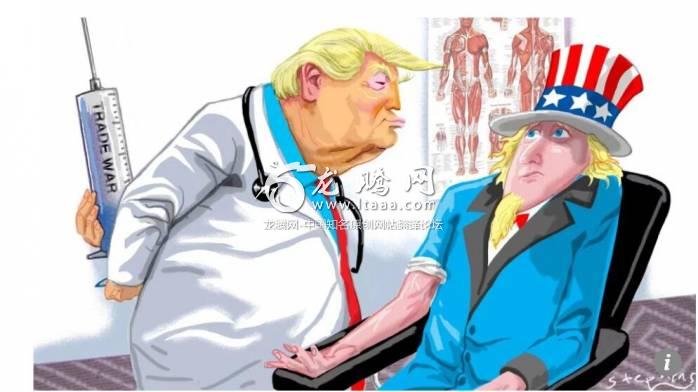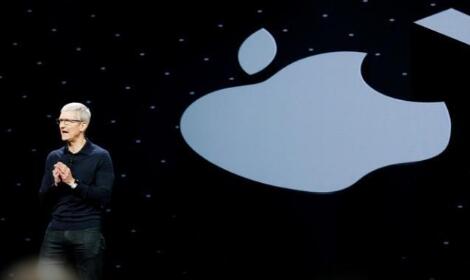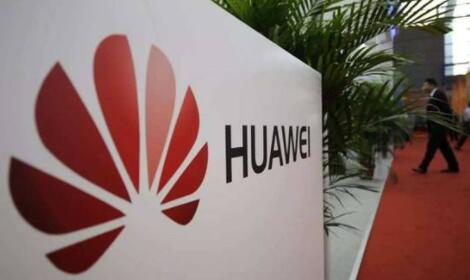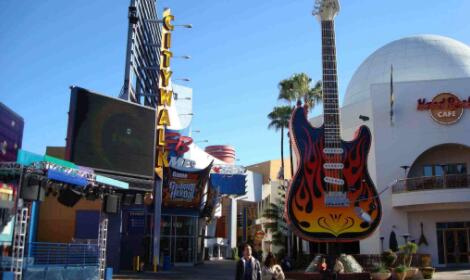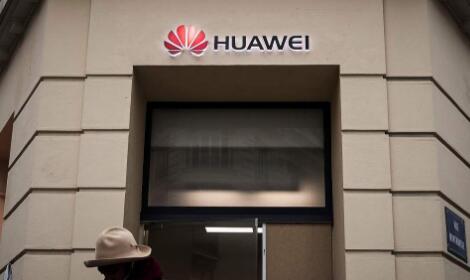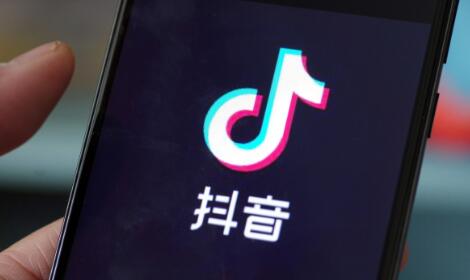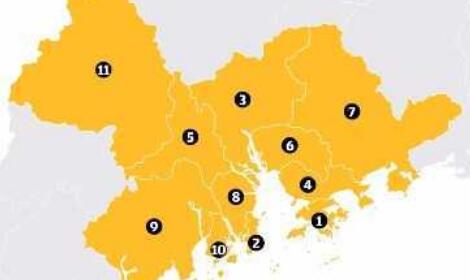特朗普告诉美国人关于贸易战的惨痛经济事实了 [联合国媒体]
彼得·纳瓦罗和亨利·保尔森,两位在对华贸易问题上有着巨大分歧的美国人,上周发表演讲,表明能够迅速处理中美贸易战的解决方案可能很难找到。
Peter Navarro and HenryPaulson, two Americans with vastly divergent views on trading with China, madespeeches last week that indicate a speedy resolution to the US-China trade war may be hard to find.
彼得·纳瓦罗和亨利·保尔森,两位在对华贸易问题上有着巨大分歧的美国人,上周发表演讲,表明能够迅速处理中美贸易战的解决方案可能很难找到。
White House trade adviserNavarro, speaking at the Centre for Strategic and International Studies inWashington, criticised Wall Street bankers and American “globalist elites” for interfering in theTrump administration’s trade negotiations with Beijing.
白宫贸易顾问纳瓦罗在华盛顿战略与国际研究中心发表讲话,批评华尔街银行家和美国的“全球主义精英”干涉特朗普政府与北京的贸易谈判。
Calling them “unregisteredforeign agents”, he said, “As part of a Chinese government influence operation,these globalist billionaires are putting a full-court press on the White Housein advance of the G20 [summit] in Argentina”, where US President Donald Trumpand Chinese President Xi Jinping are scheduled to meet later this month.
他称他们是“未注册的外国特工”,还说:“作为中国政府影响力行动的一部分,这些全球主义的亿万富翁在阿根廷G20峰会前向白宫全面施压,”在此峰会中,美国总统唐纳德·特朗普和中国定于本月晚些时候将进行会谈。
Navarro’s 2012 book, Death by China: Confrontingthe Dragon – A Global Call to Action, as you might imagine, doesn’t advocate expanding the twocountries’ trade. His detractors call him an “extremist” when they’re in politecompany. His comments about “globalist elites” were the focus of news coverage,but his 45-minutespeech was substantive.
纳瓦罗在2012年出版的《致命中国:与龙对峙——全球行动号召》一书中并没有提倡扩大两国的贸易。他的批评者在体面场合中称他是“极端主义者”。虽然他对“全球主义精英”的评论成为了新闻报道的焦点,但他的45分钟演讲却是实实在在的。
He spoke about theadministration’s efforts to restore the US manufacturing and defence industrialbase, noting that “economic security is national security”. Americans, bymeddling in the trade talks, are undermining Trump’s efforts not just on tradebut also on national security.
他谈到政府为恢复美国制造业和国防工业基地所作的努力,并指出“经济安全即是国家安全”。干涉贸易谈判的美国人,不仅破坏了特朗普的贸易上的努力,也损害了国家安全。
It’s a very American thingto go on cable news or write an op-ed and tell your president how to improvehis job performance. But it’s an entirely different thing to visit Beijing andspeak out afterwards against the policies of the US government.
(以下部分为演讲)在电视新闻上报道或者写一篇专栏,告诉你的总统如何提高他的工作表现是一件非常美国的事情。但拜访北京之后再公开批评美国政府的政策又是一件完全不同的事情了。
Since the trade war started,a steady stream of Americans, “old friends”, as Chinese Vice-President WangQishan calls them, has been travelling to Beijing, ostensibly to help China’s leaders understand what Trump is really thinking. Most have two things incommon: a financial stake in business as usual between the US and China and adisdain for Trump.
自贸易战爆发以来,源源不断的美国人,中国称之为“老朋友”,一直在旅行前往北京,表面上是为了帮助中国理解特朗普的真实想法。大多数人有两个共同点:在美国和中国之间的商业往来,以及对特朗普的蔑视。
Their mantra is that“tariffs are bad” and “nobody wins a trade war”. But, given the way bilateraltrade was heading, the US was on a trajectory to lose the trade peace. ManyAmericans believe trading with China has diminished US manufacturingcompetitiveness and harmed its national security.
他们的口头禅是“关税不好”和“没有人能赢贸易战”。但是,考虑到双边贸易的走向,美国正处于失去贸易和平的轨道上。许多美国人认为与中国的贸易削弱了美国的制造业竞争力,损害了其国家安全。
The US business elite believes thatall Beijing has to do to “win” the trade war is to convince the US to go back tobusiness as usual – strike some deal under which Beijing promises tobuy more American goods and stop the various ways it forces technology transferso the US can declare “victory” and lift the tariffs.
美国商界精英认为,北京要想“赢”这场贸易战,必须做的就是说服美国重新像往常一样做生意——达成一些协议,根据这些协议,北京会承诺购买更多的美国商品,并停止各种强制技术转让的手段,以此美国能够宣布“胜利”并提高关税。
Trump’s detractors focus onthe trade balance – it’s not really a problem, they say – while whistlingpast the graveyard of the US loss of its intellectual property andtechnological lead. They say tariffs are bad, but no one proposes a solution tostop China’s acquisition, one way or another, of US intellectual property.
特朗普的批评者把焦点放在贸易平衡上——他们说,这其实不是个问题——同时吹着口哨走过美国失去的知识产权和技术领先地位的坟墓。他们说,关税很糟糕,但没有人提出阻止中国千方百计地收购美国知识产权的解决方案。
That’s because the bestsolution may be to keep China away from it – or it away from China – and thatsolution is very much not business as usual.
这是因为最好的解决办法也许是让中国远离它们——或者说让知识产权远离中国——而这个解决办法非常不同寻常。
Towards the end of hisspeech, Navarro projected a chart, which listed “China’s acts, policies, andpractices of economic aggression”. These included “Cyber-enabled espionage andtheft” and “Forced technology and IP transfer”. He told an anecdote about anegotiating trip to Beijing to illustrate how far apart the two sides are.
在演讲快结束时,纳瓦罗绘制了一张图表,上面列出了“中国的经济侵略行为、政策和措施”。其中包括“网络化间谍和盗窃”和“强迫技术和知识产权转让”。他讲述了一个关于北京谈判出差的轶事,以说明双方的距离有多远。
He describes sitting downacross from the Chinese team and putting down a “long list of demands” to whichthe Chinese side’s response was, “We don’t engage in cyber theft. We’re thebiggest victim of cyber theft. We don’t force technology transfer.” Making agesture of frustration, Navarro asked, “How do you have a deal with somebody ifthey don’t even acknowledge your concern?”
他描述了坐在中国谈判队对面,放下一份“长长的要求清单”,中方对此的反应是“我们不从事网络盗窃。我们是网络盗窃的最大受害者。我们不强迫技术转让.” 做出个灰心的动作, 瓦纳罗问道, “如果他们甚至不承认你的担忧,你怎么和他们打交道?“
He noted that there wereover 50 such acts, policies and practices of economic aggression on the list,all “structural” issues, and that even if the two sides resolved 25 of them,the national security problem still wouldn’t go away.
他指出,名单上50多个这样的经济侵略行为、政策和措施,全都是“结构性”问题,即使双方解决了其中的25个,国家安全问题也不会消失。
In short, because of thepublicity Trump’s administration has given these national security issues, it’shard to see him backing down.
简而言之,由于特朗普政府已经公布了这些国家安全问题,他应该不大会退缩。
Former Treasury secretaryHenry Paulson, arguably Wang Qishan’s best “old friend”, now also paints a dark picture of the relationship. As head of Goldman Sachs in the1990s, Paulson advised Jiang Zemin and Zhu Rongji on the painful economicreforms they began.
前财政部长亨利·鲍尔森,可以说是中国最好的“老朋友”,现在也开始描绘了这段关系的黑暗面貌。作为20世纪90年代高盛的负责人,鲍尔森对中国就已经开始的经济改革提出了建议。
Speaking at Bloomberg’s NewEconomy Forum in Singapore last week, he warned that the US-China “healthystrategic competition” was at risk of tipping into a “full-blown cold war.” Hewas blunt in his criticism of Beijing, noting that “China still hasn’t openedits economy to foreign competition in so many areas,” and deploys a number of“non-tariff barriers to trade and investment”, saying, “this is simplyunacceptable”.
上周在新加坡举行的彭博新经济论坛上,他警告说,美中“健康的战略竞争”有陷入“全面冷战”的危险。他对北京的批评直言不讳,并指出“中国在很多领域仍然没有对外国公司开放经济。”并部署了一些“对贸易和投资的非关税壁垒”,并称“这简直是不可接受的”。
He noted, significantly,that “this negative view of China unites [American] politicians from both theleft and the right, who agree on nothing else”. Within the American politicalestablishment, “China is viewed by a growing consensus not just as a strategicchallenge to America, but as a country whose rise has come at [America’s]expense”.
他特别指出,“这种对中国的负面看法联合了左翼和右翼的(美国)政治家,他们没有在其他任何领域达成过共识。”在美国政治体制内,“人们越来越一致认为,中国不仅是对美国的战略挑战,而且是以牺牲(美国)为代价崛起的国家”。
Trump’s biggest challengemay be keeping on his side the bipartisan swathe of Americans that Paulsonnoted. To do that, he will have to convince Navarro’s “Wall Street bankers andglobalists” to “stand down”. But Beijing would probably like its “old friends”to stand up, on their chairs even, and continue their criticism of Trump.
特朗普最大的挑战可能是保住鲍尔森所指出的两党美国人。要做到这一点,他必须说服纳瓦罗提到的“华尔街银行家和全球主义者”“下台”。但北京可能会希望它的“老朋友”挺身而出,甚至在他们的职位上继续批评特朗普。
版权声明
我们致力于传递世界各地老百姓最真实、最直接、最详尽的对中国的看法
【版权与免责声明】如发现内容存在版权问题,烦请提供相关信息发邮件,
我们将及时沟通与处理。本站内容除非来源注明五毛网,否则均为网友转载,涉及言论、版权与本站无关。
本文仅代表作者观点,不代表本站立场。
本文来自网络,如有侵权及时联系本网站。
图文文章RECOMMEND
热门文章HOT NEWS
-
1
他们认为,协商失败的峰会实际上符合中国的利益,而且北京的影响力将增加,因...
- 2
- 3
- 4
- 5
- 6
- 7
- 8
- 9
- 10
推荐文章HOT NEWS
-
1
这是中国中部河南省郑州的一个普通的星期六。富士康工厂大楼上空笼罩着...
- 2
- 3
- 4
- 5
- 6
- 7
- 8
- 9
- 10
